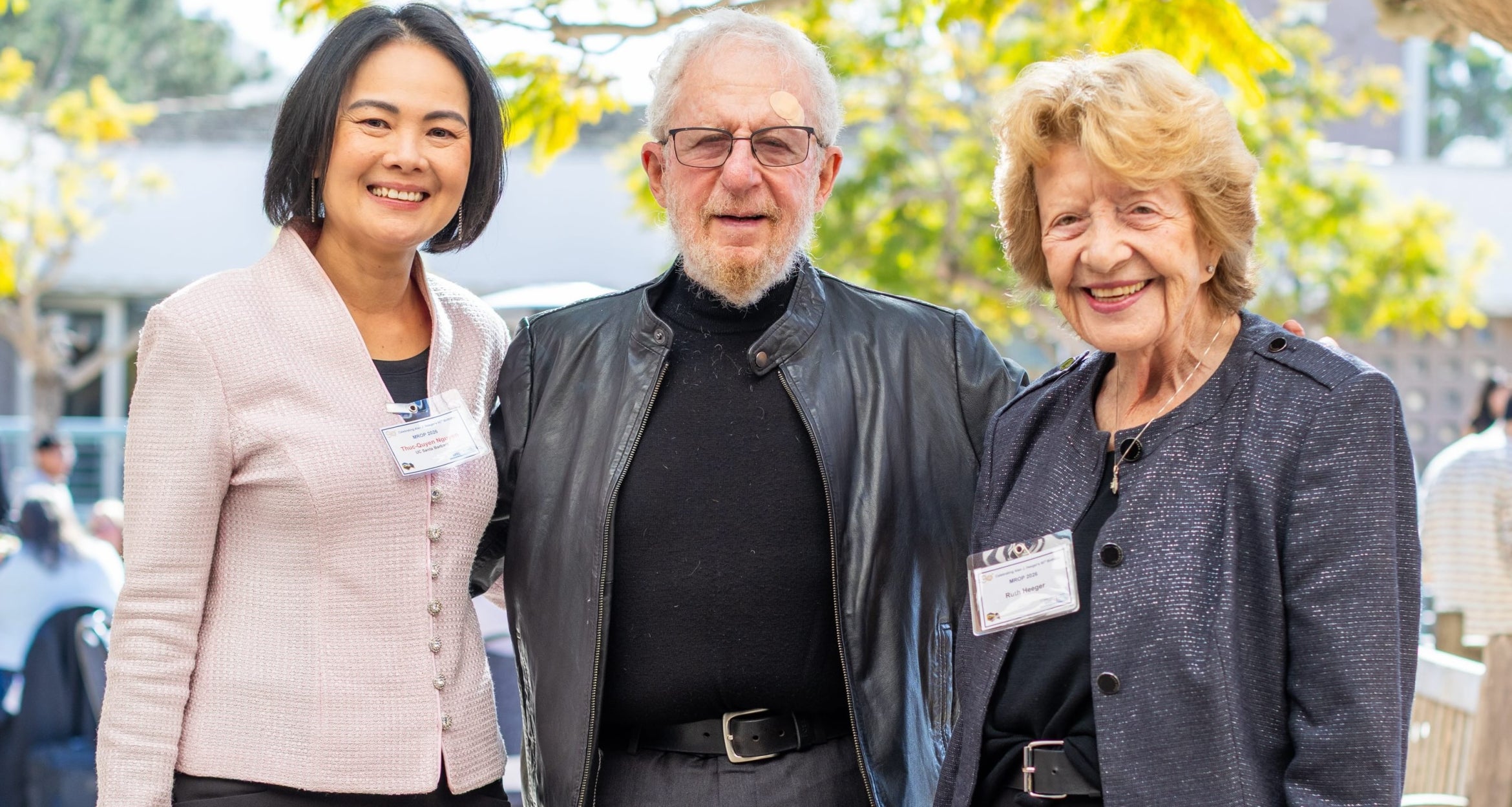
Karen Kroman Myers, assistant professor of communication at UC Santa Barbara and a specialist in organizational communication, will give the 53rd Annual Harold Plous Award Lecture on Friday, April 1.
Her talk, titled "Organizational Membership: Vocational Socialization, Organizational Entry, and Assimilation," will begin at 4 p.m. in the Mosher Alumni House at UCSB. It is free and open to the public.
In her research on organizational communication, Myers has theoretically refined and empirically extended the concept of membership negotiation as the central communicative process through which organizational socialization and assimilation occurs. Membership negotiation refers to the interaction between newcomers and old-timers, and the ongoing process of individuals accepting and creating their roles within organizations and work groups.
Myers's work has offered a theoretical foundation for understanding how people's identity at work is not only negotiated through their job performance but also through their evolving embeddedness within the organization's larger social context. She and her team have extended this program of research to include studies of how the media, parents, peers, and secondary education teachers and programs socialize adolescents to enter particular professions, including those within the science, technology, engineering, and mathematics (STEM) disciplines.
"Increasingly, organizations and organizational membership are central elements in our lives," said Myers. "Our ability to become integrated in organizations ––functionally and socially –– has a profound effect on our happiness and feelings of self-worth. My research examines communicative processes that enable individuals to negotiate their organizational memberships.
"Recently, and related to the shortage of educated workers in the science, technology, engineering, and math (STEM) industries, my research team and I have become interested in vocational socialization that affects career selection. We began with the pretense that adolescents first must have an interest and feel self-efficacy in science and math in order to become interested in STEM careers. We have conducted focus groups with 41 adolescent groups asking them about messages that they have received from educators, parents, media, etc., and other factors that have made an impression on their academic and career interests. Some of their responses were surprising, even concerning," she said.
In her lecture, Myers will discuss the importance of research in the area of membership negotiation, giving special attention to employment patterns in general, and STEM-related professions in particular. She will focus on studies in which she created and validated a measure of the dimensions of organizational assimilation; draw on her investigations of municipal firefighter crews to examine the dynamics and challenges newcomers face in assimilating into high-reliability organizations; and she will address the role of communication in vocational anticipatory socialization, with reference to prospects for increasing the interest of young adults in STEM disciplines and professions.
Myers received the 2010-11 Harold J. Plous Award in June. The award is one of the university's most prestigious faculty honors, given annually to an assistant professor from the humanities, social sciences, or natural sciences who has shown exceptional achievement in research, teaching, and service to the university. The award was established in 1957 to honor the memory of Harold J. Plous, an assistant professor of economics.



